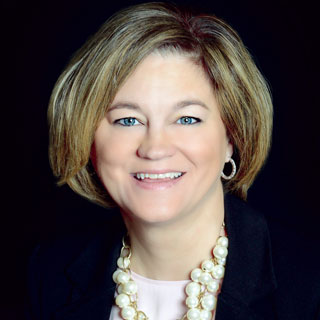
“It is what it is.”
“Hang in there.”
“Take it one day at a time.”
“We are all in this together.”
When I wrote last month’s leadership blog, I felt as if I clearly had perspective and something to offer as we started to settle in to our COVID-19 pause. At the time, we knew things were uncertain; we knew it was going to be a battle and, to no surprise to anyone in our field, our fight was going to be different than others.
Like all of you, there were several things I hadn’t planned on. The one thing I never anticipated is how all of the talking would impact us. Let me clarify. I’m all for good communication. I love to talk. I love to contemplate. But there is an underlying pressure and negativity that has impacted us as leaders more than I could have expected.
We hear the same things over and over. Opinions have become more than opinions; they have become passionate statements of who’s right and who’s wrong. Dialogue has become judgment and we’ve lost most resemblance of understanding of one another.
I certainly don’t have the answers or solutions to this pandemic, nor will I judge how others are handling it. What I will continue to do is support, appreciate and trust. The messages are unclear, the opinions are many. At the end of the day, what’s left to do is action. Getting up, doing what’s best for you. In our field it’s to continue to do what we believe is best for those we serve and for our teams doing the work.
Offering my opinions or telling someone what you can and can’t do when everyone is hearing the same messages from the “experts,” seems exhausting and not productive. Sure, we have recommendations we must follow and, even though those recommendations continue to change daily, it’s our responsibility to effectively communicate those changes. We know full well not everyone will follow them 100% of the time. Does it make more sense to criticize or encourage? I choose to encourage, strongly encourage. Not belittle or demean but explain the “why,” sometimes over and over.
Offering encouragement, inspiration and reassurance feels much more useful. I certainly have opinions on how this has been going, but rather than insert them, I choose to reserve them and focus on the now. I choose to focus on the action rather than the words. I find myself in a place I hadn’t considered before the pandemic. There is a certain power in action over words. We are doing the work in long-term care. We are showing up. We don’t have the choice to consider, then reconsider, think about it, voice opinions, and then put it into action. We turn decisions into action every day to protect those we love. We don’t have the time to use the same words over and over. We need to get the job done.
The conversation is coronavirus. It doesn’t matter if we are at work or off the clock, which by the way, we never are totally off the clock in this new world. The lingering pressure of COVID-19 just doesn’t go away. In many ways, there is nothing more to be said. There is only work to be done. Let me rephrase; There is only life to be lived. Regardless if you are a teenager or if you are the age that is considered the most vulnerable, there is life to be lived and the noise around this will soon be just that … the noise we survived in 2020, the COVID-19 pause that made us all consider how important words really are and what impact they have on the human condition.
Julie Thorson was the 2018 recipient of the LeadingAge Dr. Herbert Shore Outstanding Mentor of the Year award. Thorson is currently a coach for the Leading Age’s Larry Minnix Leadership Academy. Her “Living Leadership” blog was named the 2016 “Best New Department” Bronze Award winner by the American Society of Health Publication Editors. The president and CEO of Friendship Haven, a life plan community in Fort Dodge, IA, Thorson is a coach’s daughter at heart. A former part-time nursing home social worker, she is a licensed nursing home administrator and recently completed Leading Age’s Leadership Educator Program.





